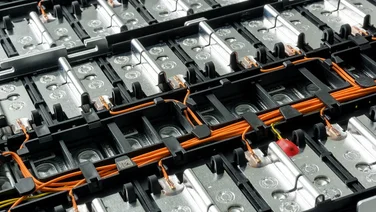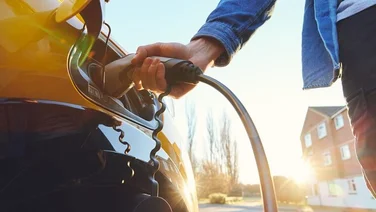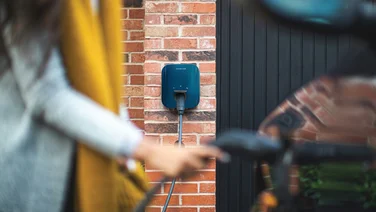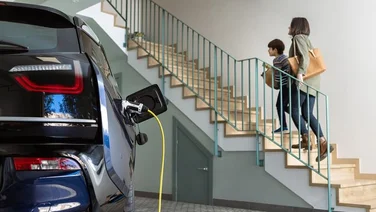We receive a small fee from trusted installers when you request a quote through our site. This helps us keep our content independent, well-researched and up to date – Learn more
- The average car battery will charge in around eight hours with a 7 kW charger
- It costs an average of £0.70 per kWh to charge an electric car
- Costs of public EV charging has increased by 50% since May 2022
Electric cars are booming in popularity, in part because of the increase in public chargepoints, and partly because of low electric car charger installation costs.
But there’s still uncertainty about how long it takes to charge an electric car. We’ve answered that question here, looking at the differences between charging at home and at a station, what the fastest car chargers are, and which electric car charges the quickest.
Ready to find your own EV charging point? Check out our easy-to-use comparison tool. Simply provide a few details about your home, and we’ll pass them on to our expert installers.
Get free EV charging point quotes
Answer a few quick questions, and our trusted installers will send you bespoke EV charging point quotes – for free.

How long do electric cars take to charge?
It can take as little as 16 minutes to charge an electric car, or as long as 12 hours. This all depends on the size of the battery and the speed of the EV charger.
A typical 60 kilowatt-hour (kWh) car battery will take just under eight hours to fully charge with a 7 kWh charger.
Most drivers tend to top their electric car’s battery up rather than wait until it’s empty, however.
A fast 11 kWh charger will charge your electric car much faster, but will also cost you more initially.
The fastest charging electric cars take just 16 minutes to go from 10% to 80% charged – though you’ll need to find a public 350 kW charger.

How long does it take to charge an electric car at home?
Most homes don’t have a three-phase power supply, which means they’re unable to use a rapid EV charger of 22 kWh or more. Homes use single-phase power supply instead, as it’s ideal for lighting and heating needs, whereas three-phase supply is better suited for large electrical motors.
So the typical EV charger for a home will be around 7 kWh, and that will charge a 60 kWh car battery in just under eight hours. You can also charge your electric car with solar panels.
The table below shows charging times for various car battery sizes, based on optimal charging from 20% to 80%:
Please note: The figures above are estimates based on battery size. Bear in mind that some cars aren’t compatible with chargers over a certain power output.
Does an electric car need charging fully?
No, it’s actually better not to fully charge your electric car’s battery because you can end up shortening its lifespan.
You should aim to maintain the State of Charge (SoC) – the level of charge in an electric battery, relative to its capacity – between 20% and 80%, as this will keep the battery healthy for longer.
You typically won’t need a fully charged electric car anyway, unless you’re going for a particularly long journey. Most people will use their electric cars for shorter journeys and a battery kept between 20% and 80% will have more than enough range for this.
What’s the fastest type of electric car charger?
The fastest type of electric car charger is a DC charger, otherwise known as a Level 3 or ultra-rapid charger. They can reach power outputs of up to 350 kilowatts (kW), although between 50 kW and 150 kW is the most common. There are only five 350-kW charger stations in the whole of London, and less than 60 throughout the UK.
You cannot install these chargers at home – instead, you’ll find them either at petrol stations or dedicated charging stations.
Not all electric cars support Level 3 charging, but most new models will. It’s also important to check what your car’s maximum charging capacity is. If it’s 50 kW, then using a 350 kW charger isn’t worth it because you won’t be using 300 kW of the available charging output.
You’ll also be paying whatever the rate for 350 kW is, without benefiting from the additional charging speed. To avoid this, you should find a charger that matches your car’s charging capacity.
Most Level 3 chargers require a specific subscription too, so even if your car had a compatible charging capacity, you wouldn’t be able to use the charger without the right card or another form of verification.
Our beginner’s guide to electric vehicle charging has more information on the ins and outs.
Are faster electric car chargers more expensive?
Found at public charging stations, faster chargers are typically 77% more expensive to use than home chargers.
The faster an EV charger is, the more it costs.
Faster chargers have been getting progressively more expensive too, in line with the rising cost of electricity.
Which electric car charges the fastest?
The Porsche Taycan has an incredible charge speed of just 22.5 minutes from nought to full, thanks to its 270 kW charging capacity. You can charge the baseline model’s battery from 20% to 80% in a blistering 11 minutes too.
What’s even more impressive is the Taycan’s range of 300 miles (limited to the most expensive models), which is double that of the highly popular Corsa-e.
You’ll need to have an EV charger with a power output of 270 kW or more, so you won’t be able to achieve this charge time at home.
It’s no bargain either, with prices starting at £75,555 for the entry-level model, rocketing all the way up to £142,791 for the Turbo S Sport Turismo edition.
The Taycan is still the best challenger to Tesla’s market dominance, but it’s definitely on the premium end of the electric car scale.
Where are the fastest electric car chargers?
You’ll find the fastest electric car chargers in most of the UK’s major cities, and at a handful of dedicated charging stations along the motorway.
You can use Zap Map to find the precise locations of EV charging stations across the country — it even lets you know when a charger is in use or available, which can be extremely useful when you’re in need of some juice.
You won’t find any of the fastest electric car chargers at a residential property, because the technology just isn’t there yet.
Summary
Electric car chargers are only getting faster — though costs will have to start falling if more people are to be tempted to adopt the technology.
The frequency of broken EV chargers is a problem that needs to be fixed too, because a robust and reliable charging network is essential to the growth of electric cars.
This unreliable infrastructure has made home charging far more popular, even if it’s slower than public stations.
If you’re ready to start searching for an EV charger for your home, you can always fill in our simple comparison tool. Just enter a few quick details and we’ll connect you with our trusted installers, who’ll get back to you with bespoke quotes for you to compare.
You can also read about what the UK thinks about EVs in our 2023 National Home Energy Survey, where we revealed that just 55% of Brits would want a free electric car.








